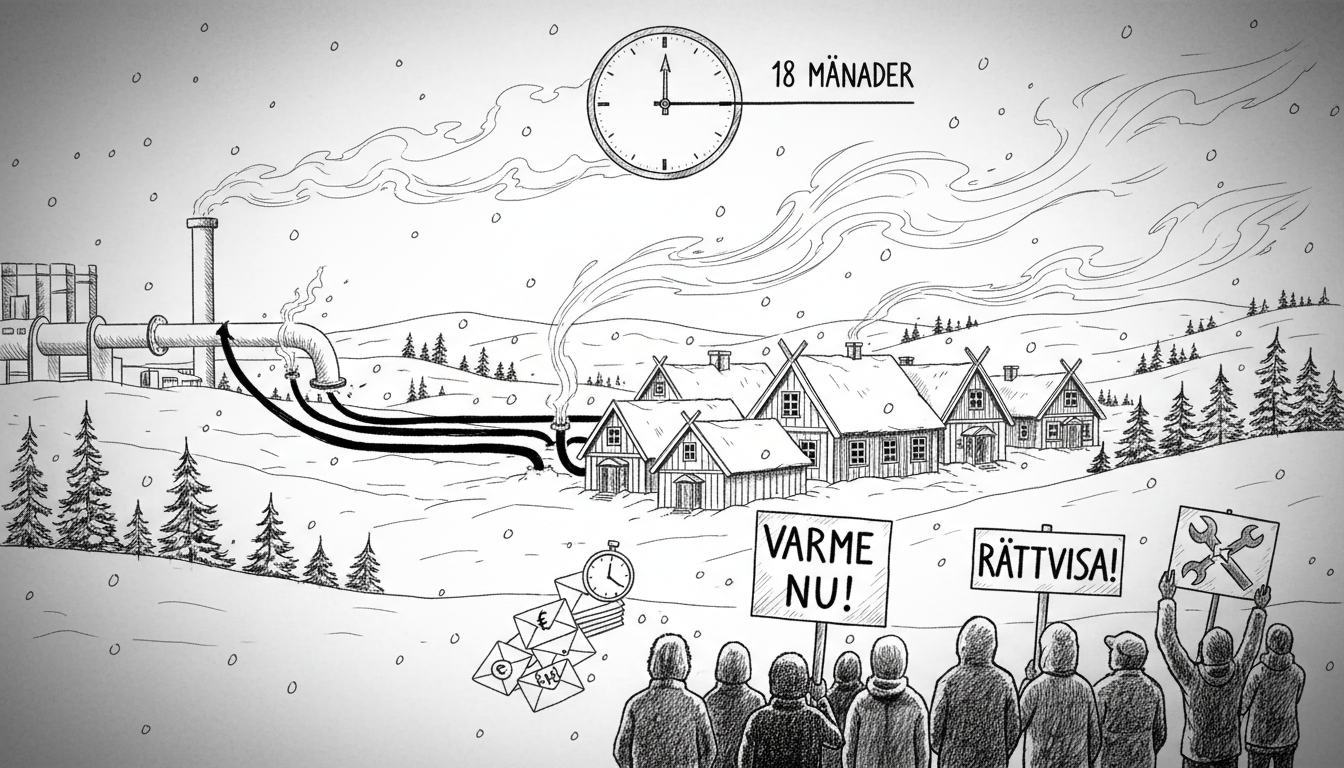Residents in Övertorneå face a difficult choice as their municipal district heating provider disconnects unprofitable customers. Affected households have 18 months to find alternative heating and hot water solutions. The local energy company offers 10,000 SEK per household as compensation.
Protests have grown into a 484-signature petition. Community members will present this petition to the municipal council on Monday.
Tomas Mörtberg, the municipal commissioner, explained the legal framework. "Following the district heating law means the company doesn't need to pay anything at all," he stated.
Övertorneå is a small municipality with approximately 4,000 residents. Only 260 of the municipality's 2,099 households connect to the district heating system.
The system was built 30 years ago with hopes for more connections. Instead, the district heating company loses 216,000 SEK annually and hasn't paid down its loans, according to Mörtberg.
In February, the municipal council unanimously approved cutting off unprofitable customers. This affects households on Lingonstigen and Åkerbärsvägen in Touravaara residential area, plus some homes on Matarengivägen.
When asked about residents feeling betrayed by their municipality, Mörtberg acknowledged their perspective. "They're partly right, these affected people, but this is to save the company," he said. "We have maybe 200-250 other customers. The risk of just raising rates further is that we lose even more customers."
The protests prompted reconsideration among some council members. The Healthcare Party and Social Democrats now work to reverse the decision after realizing its consequences.
Knut Omark from the Swedish Left Party admits he lacked complete information when voting. "I made the wrong decision," Omark said. "I live in Tuoravaara myself. Next time, I could be the one affected."
This situation highlights the challenges small Nordic municipalities face maintaining public utilities with limited customer bases. The conflict between financial sustainability and public service obligations becomes particularly sharp in remote northern communities where alternatives are scarce.
